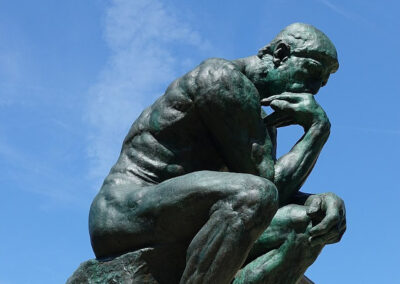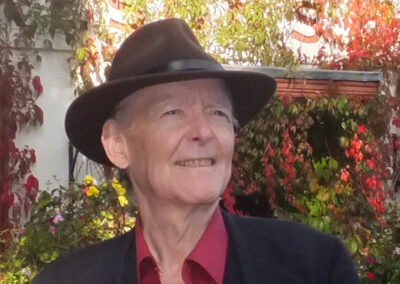Too much forethought can result in paralysing action, Necessary decisive action can be stifled. As the Bard put it in Hamlet, one can be ‘sicklie’d o’er with the pale cast of thought!’. Reflection needn’t result in a ‘sick lie’ but it can go too far. The reader is emphatically asked to form his or her own opinion.
As ever, balance comes into play. That in itself can giv rise to difficulty. It does not mean, at the end of the day, it has to be ‘six of one and half a dozen of the other’. This attitude is a peculiarly English malaise though it can also be glimpsed in the politeness of the Japanese. A confusion of precepts (see above) can result in the process of being balanced morphing into being magisterial and tends towards thinking that there is something to be said for all sides. But sometimes it is a not a binary case of right or wrong. It can be eight of one and two of the other.
Oher controversies may arise, for instance a calm consideration of a given view so as to get it balanced may result in becoming angry when one wasn’t before.
Here is what Dan Remenyi writes about one of its’ central lines of argument:
I am struck by the incongruity of the idea that somehow reflection could be catalogued as a subsection of Western Meditation or for that matter meditation be a subset of reflection. I see these two concepts are entirely different.
For the purposes of simplicity, I will use the Wikipedia definitions of Meditation and Reflection. Meditation is described as a practice in which an individual uses a technique – such as mindfulness, or focusing the mind on a particular object, thought, or activity – to train attention and awareness and achieve a mentally clear and emotionally calm and stable. Reflection is the act of giving something serious thought. Using dictionaries, thesaurus and just common English usage there is no direct connection between the concepts of meditation and reflection. The Wikipedia definition is how I use the word meditation. On one of your webpages, you cite an extract from a Jewish prayer which says “And can I better employ this holy Sabbath than in endeavouring to exalt my mind, and purify my soul, than by meditation on Thy Holy Law, by prayer, and by the severe examination of my thoughts and actions… Then my body will enjoy rest, my heart elevated in gratitude, and my faith and courage sustained by meditation and prayer; thus will my soul be prepared for eternity.
The use of the word meditation here conveys a different idea which is neither what I call meditation nor reflection. In the religious context here the word meditation is being used to describe the process of focusing on a sacred object to reach a state of some tranquillity. It is much more like the way a mantra is used in proper meditation itself.
I see the word reflection as bringing to mind a number of things. Firstly, to reflect is necessary to pause and concentrate. Secondly reflection means engaging in active thought on a specific subject. Thirdly, the active thought needs to be in the form of asking questions such as:
1. What precisely am I doing?
2. What do I really know for sure about what I am doing?
3. What are the expected consequences of my current trajectory.
There is another level of questioning, and this is generally referred to as using reflexivity. Reflexivity employs a different level of questioning. The “what” word is often replaced with the “why” word can be quite problematic. In practising reflexivity the questions would now address issue such as:
1. Why am I doing this thing?
2. Why do I think that what I am doing matches up with my values?
Dan Remenyi is a partly retired author and teacher with a strong interest in helping research degree candidates complete their masters or doctoral degrees. With an original interest in ICT he has over the years migrated to research methodology and related topics. His positive views on Reflection appear o the Institute of Reflection website under the head of ‘Reflection as an Academic Discipline’







